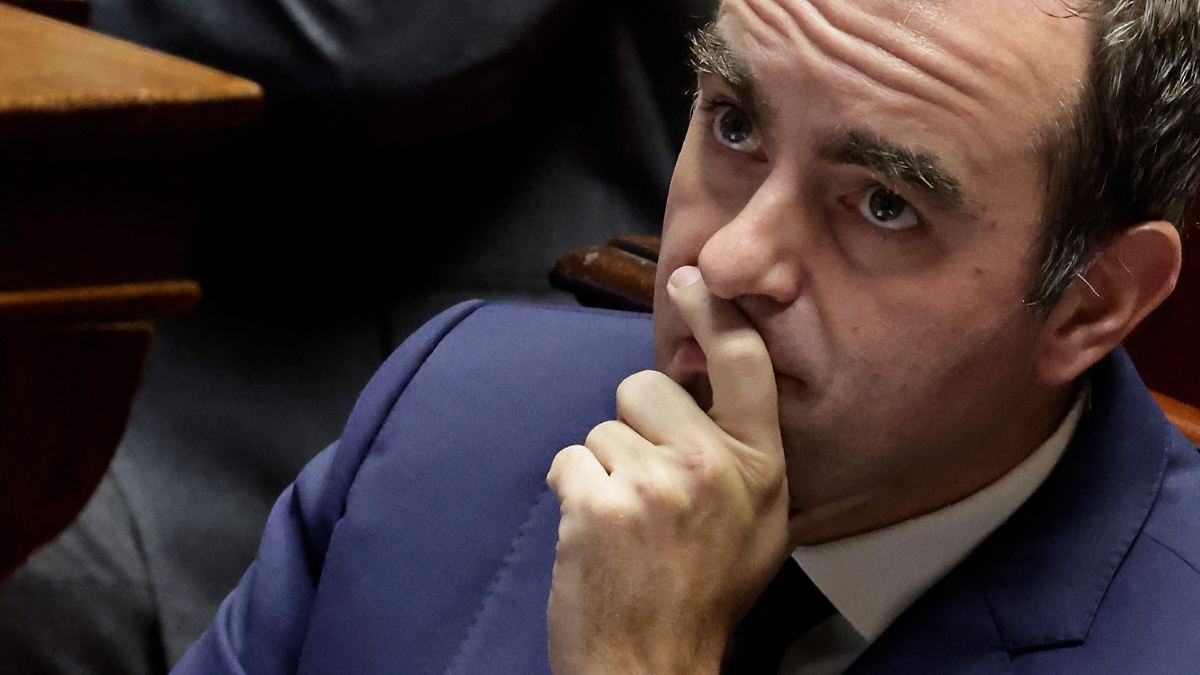Left-liberals ahead in Dutch election – defeat for right-wing populist Wilders

The Hague. Geert Wilders looked pale, tired, and deflated. According to projections, the 62-year-old radical-right populist from the Netherlands suffered a defeat in the parliamentary elections. His Party for Freedom (PVV) is projected to win only 25 of the 150 seats in parliament, 12 fewer than two years ago, and is therefore no longer the largest party. Instead, the left-liberal Democrats 66 (D66) are the big winners with 27 seats – three times as many as two years ago.
The victory is thanks to the 38-year-old lead candidate, Rob Jetten, and his positive message and youthful energy. He now has the best prospects of becoming the next Prime Minister.
Jetten described his party's performance as a "victory over the hatred" of right-wing populist Wilders. "This is a farewell to political negativity," the 38-year-old politician said at his party's election night party. The Dutch people had sent a clear signal for a positive future.

However, the left-wing parties did not benefit from Wilders' defeat. The red-green coalition GroenLinks-PvdA, led by former EU Commissioner Frans Timmermans, even suffered losses, winning 20 seats – five fewer than in the previous election in 2023. Timmermans (64) announced his resignation as party leader on election night. The Christian Democrats made a comeback with 19 seats – in 2023 they had shrunk to a fringe party.
For many, it's a relief that Wilders, with his one-man party—he himself is the sole member—is no longer the strongest force. However, this doesn't yet give the country a stable government. Negotiations could take a long time—two years ago they lasted seven months. According to the preliminary results, a center-right coalition of four parties led by Rob Jetten would have the best chance of securing a stable majority.
According to analysts, the Dutch electorate has overwhelmingly made it clear that they are fed up with chaos and infighting. They want the parties to work together and tackle pressing problems such as the housing shortage, asylum and migration issues, high healthcare costs, agricultural emissions, and climate protection. And that is precisely what former Climate Minister Rob Jetten promised.
How different things were just two years ago: Geert Wilders was dancing, clutching his platinum-blond hair in disbelief. It was unbelievable – 37 seats for his PVV. No one had predicted this landslide victory. It was his greatest triumph and his chance to finally be part of the governing coalition.
The leading candidate of the right-liberal VVD, Dilan Yesilgöz, had made this possible. She had torn down the firewall that her predecessor, the long-serving Prime Minister and current NATO Secretary General Mark Rutte, had erected.
The VVD eventually formed a government together with Wilders' party and two other parties. Wilders relinquished the position of prime minister, which was then taken over by the non-partisan former civil servant Dick Schoof. However, this four-party coalition became a fiasco. For eleven months, chaos, infighting, and incompetence reigned; Schoof had no authority whatsoever. After only eleven months, Wilders forced the coalition's collapse. His justification: his coalition partners allegedly refused to implement a strict asylum policy. Many observers, however, explained Wilders' political maneuver by pointing to his declining approval ratings.
The election result is not a red card for the far-right Wilders, however – after all, he remains the second-strongest party. It was primarily two of his former coalition partners who paid the price for the government's collapse: the centrist NSC party will not return to parliament, and the right-wing farmers' protest party BBB will retain roughly half its seats. The center-right VVD, on the other hand, maintained its position, securing 23 seats.
The losses suffered by Wilders' anti-Islam party can be explained primarily by his supporters realizing that a vote for the PVV was a wasted vote. Because now the firewall is back in place. He will no longer be part of the governing coalition.
Is Wilders finished now? It would probably be premature to say so. He will remain in parliament and raise his voice there as leader of the opposition. "You're not rid of me yet, I'll keep going until I'm 80," he prophesied when casting his vote.
The election result cannot be interpreted as a departure from right-wing politics. In terms of policy, all major parties have shifted to the right and, influenced by Wilders, have incorporated stricter rules on asylum and migration into their platforms. There is also no majority for a center-left alliance, but there is for a center-right coalition. The moderator of the election broadcast on public television, Rob Trip, therefore summed up the result as follows: "The Netherlands is right-wing."
And the election reveals something else: the fragmentation of parliament is here to stay. Eight small parties won only two or three seats. The far-right Forum for Democracy and the right-wing populist JA21 also made significant gains – the latter could even enter a coalition. Wilders' heirs are warming up.
RND/dpa
rnd







